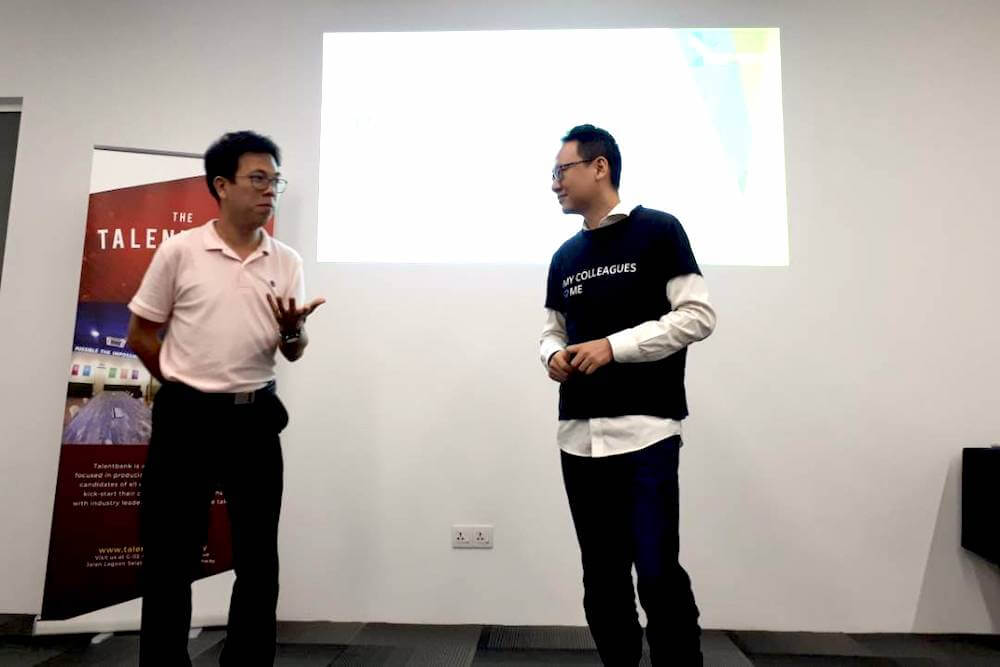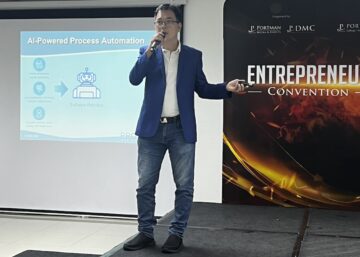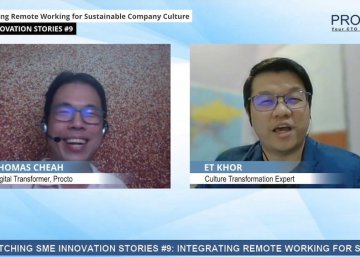
For many years, Effon Khoo, the CEO of Kakitangan.com, has been empowering organizations to take advantage of technology in managing people and creating an efficient work environment. He recently joined our Hard Talk session at SME Innovation Stories #3 (hosted by Talentbank) several weeks ago, where I had a far-ranging discussion with him on the evolution of people management techniques to adapt the modern working landscape in the digital age. The response from Effon was a good wake up call to many SMEs as they are still practicing people management in the industrial age that was developed 40 years ago.
Thomas Cheah: Over the years, we have witnessed several business makeovers in terms of marketing, branding, customer relationship management, etc. One thing that we are still lacking behind is people management. Why is that? And what’s wrong with this approach?
Effon Khoo: When we started a business, we take for granted that if we put up a team of people, they will self manage by themselves. Obviously, that’s not the case. As a business owner, we realize that we need to deal with the statutory requirements of our employees. Too often we underestimate the effort that we need to put in these tasks. This will gradually take the time away from our core tasks that matter the most to our organization, such as how do we ensure our people are 120% engaged in this company? Or how do we continuously improving the organization performance every quarter?
“Too often we underestimate the effort that we need to put in these tasks. This will gradually take the time away from our core tasks that matter the most to our organization, such as how do we ensure our people are 120% engaged in this company? Or how do we continuously improving the organization performance every quarter?”
– Effon Khoo, Founder of Kakitangan.com
Thomas Cheah: Many business owners understand that human capital is the company’s greatest asset. But they are struggling to cope with the society and cultural changes based on the increasing increasing dominance of digital technologies. What are the trends that you see in the role of technology in HRM?
Effon Khoo: HR tools are increasingly accessible and affordable to small companies. They are no longer tools for the big boys. Those who adopted it earlier will gain efficiency advantages over their competitors. Modern HR tools are used in attracting and retaining younger generation of talents. They will judge your company based on how these tools are being used. HR tools are moving from desktop based to cloud based. “Business Continuity” is no longer an exclusive to large corporates.
Thomas Cheah: We have also seen how digital technologies have enabled new forms of organizing work that range from virtual workplaces to virtual teams. Managing such work arrangements is significantly different than conventional way of managing employees. What advice can you share with us to implement a successful flexible workplace program?
Effon Khoo: It is interesting to note the recent development that IBM no longer encourage that (virtual teams). First and foremost, remote workplace will make managing organizational culture even more challenging if it is not implemented correctly. Yes, it allows you to save cost on office space, but you need to establish a platform that enables ongoing communication and also get-together time. Rather than going all-out to virtual offices, I would recommend a staged approach starts from centralized office space, to remote offices, and fully virtual offices.
Thomas Cheah: To wrap up, we have discussed various aspects of people management in this new digital age. This transformation is becoming more apparent as top management see digital HR strategy as a strategic priority for business growth. Can you inspire us with new business opportunities enabled by this strategy?
Effon Khoo: The most obvious advantage of today’s digital HR technology is enhancing the efficiency of recruitment process. As mentioned earlier, the use of modern HR technology will play a critical role in establishing a strong employer brand. Big data offers richer insights into your employees’ performance, which in turn enables fairer appraisal. Finally, workplace gamification will boost employees learning and development to drive employee motivation and engagement.
What is SME Innovation Stories Series?
This is a talk series that shares and analyzes case studies of digital transformation projects in the SMEs. The objective is to provide inspirations for SME business owners and CEOs on variety of ways they can innovate their business. The discussion will be presented in storytelling form of real-world projects, instead of theories and concepts.


